Featured Products
-
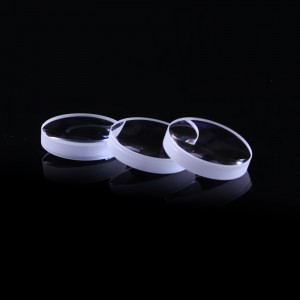
Precision Polished Aspheric Lenses
Small aspheric glass lenses can be made by molding, which allows cheap mass production. Due to their low cost and good performance, molded aspheres are commonly used in inexpensive consumer cameras, camera phones, and CD players.They are also commonly used for laser diode collimation, and for coupling light into and out of optical fibers. -
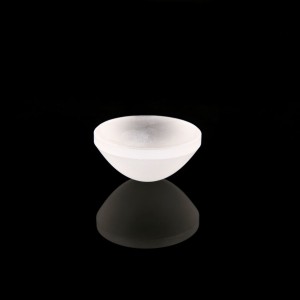
Customized Sapphire/Fused Silica/Bk7 Optical Aspherical Lens
An aspheric lens or asphere (often labeled ASPH on eye pieces) is a lens whose surface profiles are not portions of a sphere or cylinder. The asphere’s more complex surface profile can reduce or eliminate spherical aberration and also reduce other optical aberrations such as astigmatism, compared to a simple lens. A single aspheric lens can often replace a much more complex multi-lens system. -
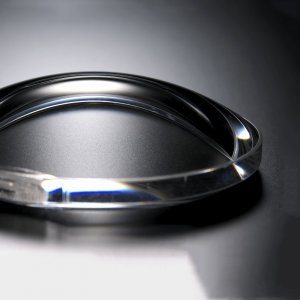
Factory Supply Optical Convex Lens transparent Silicone Optical Aspherical Lens for Stage Light
Small aspheric glass lenses can be made by molding, which allows cheap mass production. Due to their low cost and good performance, molded aspheres are commonly used in inexpensive consumer cameras, camera phones, and CD players.They are also commonly used for laser diode collimation, and for coupling light into and out of optical fibers.
Larger aspheres are made by grinding and polishing. Lenses produced by these techniques are used in telescopes, projection TVs, missile guidance systems, and scientific research instruments. They can be made by point-contact contouring to roughly the right form which is then polished to its final shape. In other designs, such as the Schmidt systems, the aspheric corrector plate can be made by using a vacuum to distort an optically parallel plate into a curve which is then polished "flat" on one side. Aspheric surfaces can also be made by polishing with a small tool with a compliant surface that conforms to the optic, although precise control of the surface form and quality is difficult, and the results may change as the tool wears. -
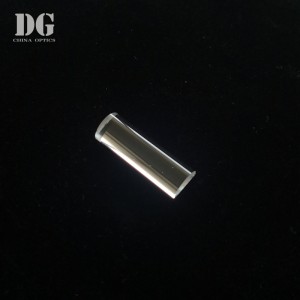
Cylindrical lenses
Cylinder lenses are a type of lens that have differing radii in the X and Y axes, causing the lens to have a cylindrical or semi-cylindrical shape, and image magnification in only a single axis. Cylinder lenses are commonly used as laser line generators, or to adjust image height size or correct for astigmatism in imaging systems. -
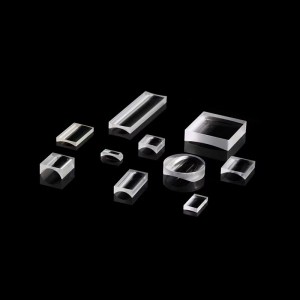
Positive Cylindrical Lenses Plano-Convex Cylinder Lenses
A Cylindrical lens is a special type of cylinder lens, and is highly polished on the circumference and ground on both ends. Cylindrical lenses perform in a manner analogous to a standard cylinder lens, and can be used in beam shaping and to focus collimated light into a line. -
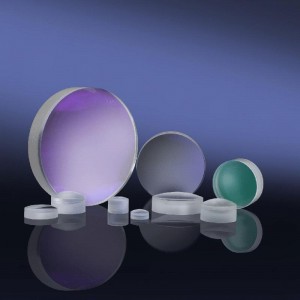
Symmetrical Biconvex Lens, Custom Made Coating Spherical Double Convex Lens
An achromatic lens, often called an achromat, is a type of optical lens capable of correcting chromatic aberration, a distortion that occurs when glass splits white light into multiple colorwavelengths in the spectrum.
Chromatic aberration is a common type of imaging defect. When white light passes through a singlet lens, the wavelengths of light are refracted. Because different wavelengths pass through the glass at different rates, they come into focus at different points on the plane. As a result, the operator will not be able to bring all the colors into focus simultaneously. Chromatic aberration creates blurry fringes of color between dark and light parts of an image, significantly reducing image quality.
To deal with the problem of chromatic aberration, people rely on achromatic lenses, which combine two or more lenses to direct two wavelengths of light, usually red and blue, to the same focal point. -
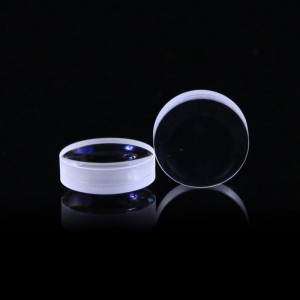
Optical Cemented Achromatic Doublet Glass Lens, Near Infrared Coating for Ophthalmic Instrument
An achromatic lens or achromat is a lens that is designed to limit the effects of chromatic and spherical aberration. Achromatic lenses are corrected to bring two wavelengths (typically red and blue) into focus on the same plane. -
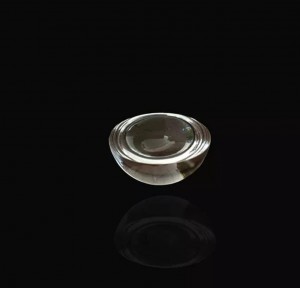
Optical Bk7 Glass Diameter 3mm Ball Lens for Fiber and Optical Coupler
Ball lenses are, as the name suggests, completely spherical lenses most commonly used to couple light in and out of fibers. We can supply ball lens in a range of alternative materials and diameters. -
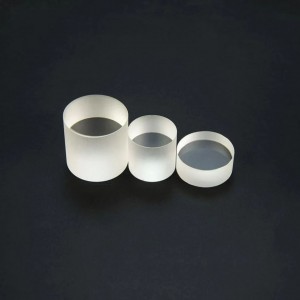
Optical Glass Bk7 K9 Cylindrical Rods Lens for Optical Equipment
A rod lens is a cylindrical lens which has the geometrical form of a cylinder and has a polished mantle, while the two flat end surfaces may be ground. It is analogous to a ball lens for focusing in both directions. Rod lenses can be used, for example, for collimating a divergent beam in one dimension (see Figure 1) or for focusing light to a line. There are also imaging applications. -
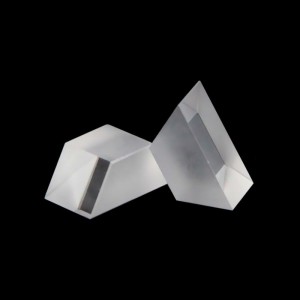
high precision right angle prisms made of H-K9 and fused silica
An optical prism is a solid, transparent optic with flat surfaces which refract light. Light enters through one surface, and may be rotated, deviated, or dispersed before leaving through another surface. These surfaces are highly polished, and the angles between them, the number of surfaces, and the position of them determine the function of the prism. -
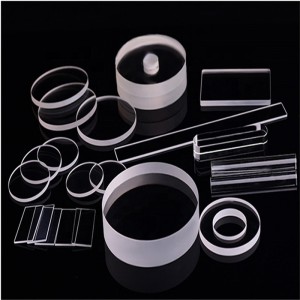
Bk7 Optical Glass Windows UV Coated Quartz Window Sheet
Optical windows are flat ,plane-parallel plates,they are offen used as protective barriers for electonic sensors or
detectors from outside enbironments,we offer optical windows those are made from different materials ,such as Germanium (Ge), Silicon (Si), N-BK7(k9), Fused Silica, Zinc Selenide (ZnSe) and other choice as your requirements,About the Ultraviolet (UV), visible, or Infrared (IR) optical windows ,we offer multipe anti-reflection coating choice to fulfill your need.
-
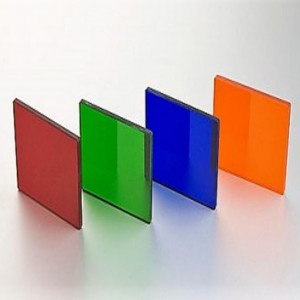
Narrow Bandpass Laser Ranging Optical Radar Lens Laser Filter 635nm 905nm 1064nm
Colored filter glass can be instrumental in achieving the highest contrast image possible in your machine vision systems design. Providing high transmittance, reliable quality and durability as well as minimum polarization effects, colored filters offer impressive individual benefits that greatly improve a machine vision systems performance.












